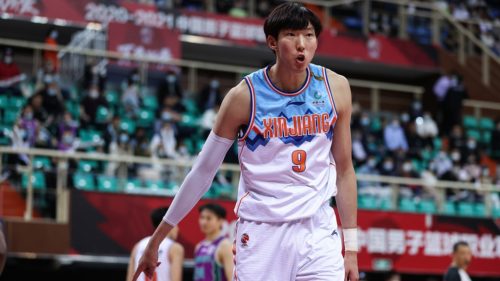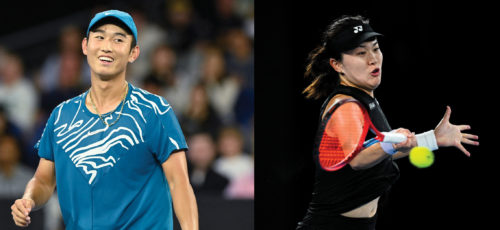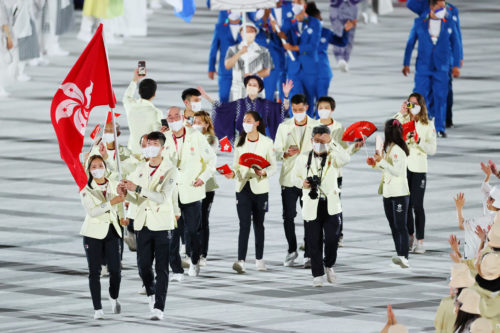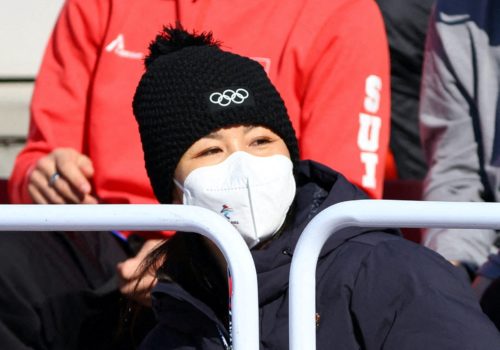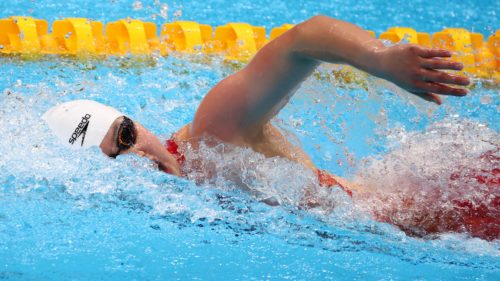FIFA opens Weibo account, new badminton height requirement, and yaks at Beijing Olympics?
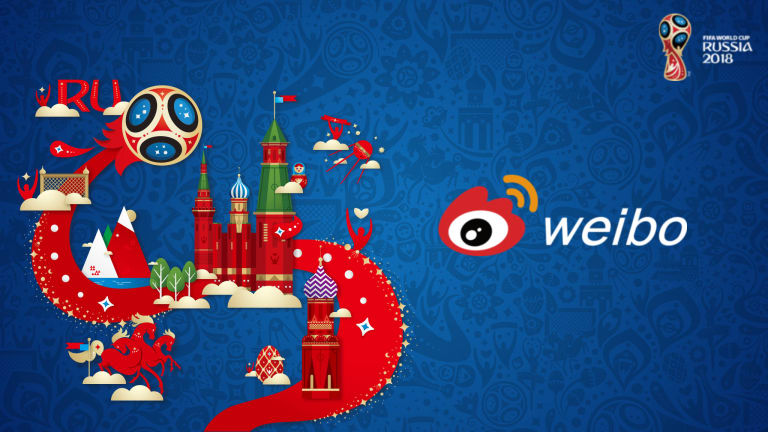
The China Sports Column is a The China Project weekly feature in which China Sports Insider Mark Dreyer looks at the week that was in the China sports world.
FIFA finally got off its extremely cozy couch this week and launched an official Weibo account — approximately two World Cycles too late. Weibo launched in 2009 and quickly became a vibrant platform, but a migration of users to WeChat and some heavy-handed censorship then saw the platform take a dive. The censorship remains, of course, but Weibo has risen again, particularly for less controversial topics — of which sports is typically one. Most of the European soccer clubs now have official accounts, as do many international athletes, meaning there has long been plenty of football-related content on the site. In fact, this week’s news has come as a shock to many Weibo users who actually thought they were already following FIFA, whereas in fact they’d been reading one of several unofficial fan-run accounts. Fortunately for FIFA, none of these authors have yet gone rogue and called for the heads of one or more officials, but the massive influx of Chinese money — Wanda, Hisense, Vivo, Mengniu, and Alibaba all contribute to FIFA’s coffers — has evidently persuaded those at FIFA HQ that they really should cater a little more to their Chinese customers. However, while the official FIFA website comes in English, German, French, Spanish, Arabic, and Russian, there is still no edition in Mandarin — by far the most spoken language in the world.
~
It should come as no surprise that Yao Ming is not contemplating a second career in badminton (bear with me on this one), but if he were, he’d find the odds have now been stacked heavily against him. A new rule by the suits at the Badminton World Federation (BWF) now means that players have to serve with the shuttlecock no higher than 1.15 meters (3 feet, 9 inches) from the ground – though fortunately it doesn’t have to be at exactly a height of 1.15 meters, as this report would have you believe. Players, it seems, are furious. Chinese legend Lin Dan, who measures 1.78 meters (6 feet), had this to say:
“I’m not attacking the judges, as this is their job responsibility, but I just want to ask the world governing body: what do you want to achieve? What’s the meaning of changing the rule? Is it for the sake of the better development of badminton? From the bottom of my heart, it is not!”
World No. 1 Viktor Axelsen — who’s become a favorite of Chinese fans thanks in part to his Chinese-language skills in CCTV interviews — stands at 1.94 meters (6 feet, 4 inches) and towers over most of his opponents. He is currently injured, but his return to competition will be worth watching. When the new rule was first mooted last year, he posted this video in which he attempts to serve while squatting and kneeling, in order to comply with the new height regulation.
Still, it could be worse: Yao measures 2.29 meters (7 feet, 6 inches), so would have to employ decidedly underhand tactics to serve.
~
“Should Yaks Be the Face of the Beijing 2022 Winter Olympics?” asks Sixth Tone. I think we all know the answer to that, but to save you a click, here’s the deal: NPC delegate Bai Jiazhaxi proposed that yaks — common to Bai’s province of Qinghai — should be represented at the 2022 Olympics in the form of a mascot, because its “endurance, sacrifice, and solidity” align with Olympic ideals. Perhaps Bai forgot that the Olympics will be in Beijing rather than in Xining, though it’s rather endearing that he still holds firm to the ancient Olympic spirit, rather than the modern one of doping and dollars. However, should Beijing decide to go off-piste and recruit a mascot from outside its own environs, it was clear from the Chinese handover performance at the closing ceremony in Pyeongchang that a panda will get the nod over a yak.
~
Three Chinese women (out of 17 total nominees) were honored by Barbie to mark the recent International Women’s Day. Any guesses as to who they were? Clue: this is a sports column. In fact, sports featured heavily in the lineup of this year’s “Sheros,” with the U.S. trio of snowboarder Chloe Kim, gymnast Gabby Douglas, and fencer Ibtihaj Muhammad getting their own dolls, alongside Italian soccer player Sara Gama and British boxer Nicola Adams. Meanwhile, China was represented by ballet dancer Tan Yuanyuan, actress Guan Xiaotong, and volleyball player Hui Ruoqi. Hui was part of the Olympic squad that won gold in Rio two years ago, and while it was Zhu Ting — who reportedly makes a seven-figure salary playing in the Turkish league — who was the team’s star player, Hui has quite a story. Blighted by injuries throughout her career, she had seven pins inserted into her shoulder and also had two heart surgeries, but came back as captain to lead China to the Olympic title after a 12-year wait. Her superpowers do have limits, though: given that she retired earlier this year at the age of just 26, Xinhua might want to rethink its claim that she had an “18-year professional career.”
Three other stories worth reading this week:
- Englishman Alexander Jarvis has been quoted by dozens of China-based journalists — including the Financial Times, Bloomberg, the Wall Street Journal, Reuters, and the BBC — as a seasoned dealmaker in stories about Chinese firms buying up European soccer clubs. But this expose in the New York Times, which had also previously quoted him, paints Jarvis as an imposter attempting to trade off less than solid relationships. It’s an interesting tale — and, fraud or not, there aren’t too many 26-year-olds who merit 2,000 words in the New York Times — but at its core, it’s more of a parable about the murkiness of China’s sports scene and just how little is known about it in the rest of the world.
- This ESPN piece details how Dwayne Wade’s original deal with sportswear company Li-Ning opened up a viable option for NBA players to sign huge sponsorship deals with Chinese shoe firms, something that would have been previously unthinkable.
- Finally, sports don’t usually get much of a mention when it comes to the Two Sessions, given the political nature of the meetings. After all, who’s got time for football when there are term limits to abolish? Sure, Yao Ming dutifully turns up every year, but he has to talk about things like “reform” and “policy,” rather than “dunk” and “air ball.” But every now and then, if you pay attention, the sports industry gets a shout out from those at the top — and it’s actually pretty important if you want to know where the country’s heading. This analysis is long and boring, but I wrote it so you should read it in full.
The China Sports Column runs every Friday on The China Project. Follow Mark Dreyer @DreyerChina.
